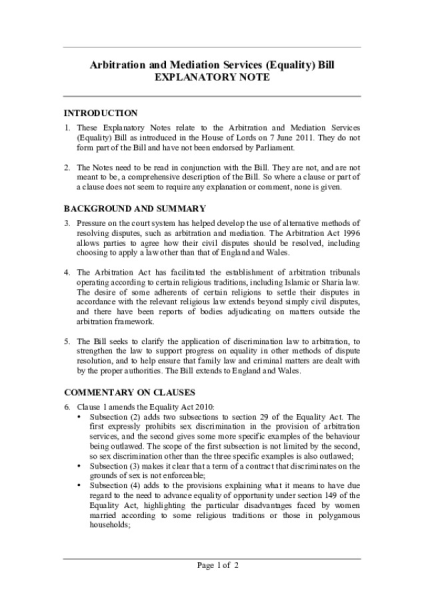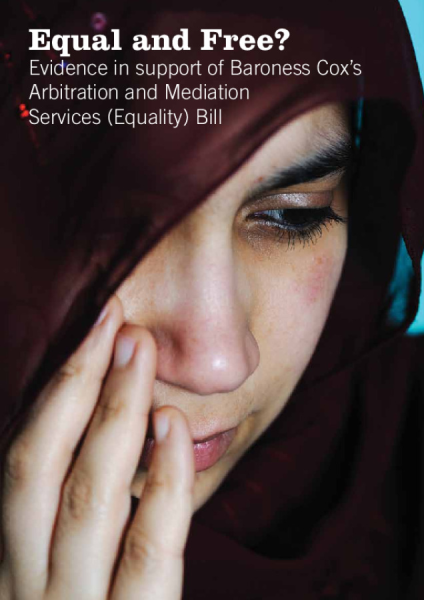Arbitration and Mediation Services (Equality) Bill - 2011
The Arbitration and Mediation Services (Equality) Bill has been reintroduced without major revision in the 2014-15 and 2015-16 Parliamentary sessions.
There is widespread concern about the operation of Sharia law in the UK. The Arbitration and Mediation Services (Equality) Bill tackles the problem of a parallel legal system challenging English law and the problem of sex discrimination in Arbitration Tribunals.The NSS are co-sponsors of the Bill.
The intention of the Bill, introduced into the House of Lords by Baroness Caroline Cox, is to make arbitration services in the UK subject to equality laws and to bar any arbitration where parties are of unequal standing; for example, it would disallow arbitration providers placing greater weight on the testimony of one party over another, as is the case with sharia law where a wife's word is worth only half of her husband's. The Bill will also create a criminal offence and make it illegal for arbitration bodies to pretend they have greater jurisdiction than they do – in other words, preventing them from misinforming people that they must obey their rulings. It will also place a duty on public bodies in the UK to inform women of their rights under British law.
The Bill's proposals include:
- A new criminal offence of 'falsely claiming legal jurisdiction' for any person who adjudicates upon matters which ought to be decided by criminal or family courts. The maximum penalty would be five years in prison.
- Explicitly stating in legislation that sex discrimination law applies directly to arbitration tribunal proceedings. Discriminatory rulings may be struck down under the Bill.
- Requiring public bodies to inform women that they have fewer legal rights if their marriage is unrecognised by English law.
- Explicitly stating on the face of legislation that arbitration tribunals may not deal with matters of family law (such as legally recognised divorce or custody of children) or criminal law (such as domestic violence).
- Making it easier for a civil court to set aside a consent order if a mediation settlement agreement or other agreement was reached under duress.
- Explicitly stating on the face of legislation that a victim of domestic abuse is a witness to an offence and therefore should be expressly protected from witness intimidation.
The Bill received its 1st reading in the House of Lords on 7 June, 2011. Unfortunately, due to lack of support this Bill will not be able to progress in its current form.
Download the Explanatory Note on the Bill here
'Equal and Free?' is a book of evidence compiled in support of the Bill. It includes testimony from women who have been through the sharia family law system here in Britain, as well as charities and groups which work closely with these women. It also looks at other religious tribunals, such as the Beth Din, and the effect the Bill may have on arbitration more broadly.
 Arbitration Bill Explanatory Note (PDF, 77 Kb)
Arbitration Bill Explanatory Note (PDF, 77 Kb) Equal and Free (PDF, 507 Kb)
Equal and Free (PDF, 507 Kb)

